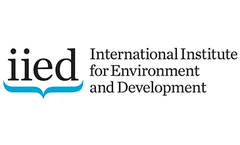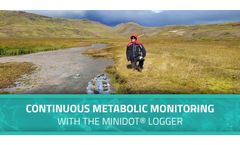Climate Change Articles & Analysis: Older
28 articles found
The advent of tools like zinc finger nucleases and TALENs marked significant progress, allowing scientists to introduce specific changes in the genome. Nevertheless, it was with the advent of CRISPR-Cas9 that genome editing truly reached its potential, offering a more efficient, versatile, and affordable solution for modifying plant genomes. ...
This paper provides a comprehensive taxonomy of climate-attributable loss and damage in context of least developed countries and Small Island Developing States in Asia and the Pacific. It highlights the need for tailored strategies encompassing demographic, socioeconomic and political challenges, and suggests a three-pillar approach involving grassroots engagement, ...
Case Study Description Warming Waters and Metabolic Rates As climate change continues to warm our world and its waters, scientists and researchers across the globe have spent years attempting to understand and predict the ramifications such warming will have on Earth’s ecosystems. ...
At the 2021 COP26 summit in Glasgow, further cuts to carbon dioxide emissions were agreed to accelerate action on climate change over the course of this decade. The aim is to keep the average global temperature increase to less than 1.5°C, as recommended by scientists to prevent a climate catastrophe. ...
With our current drive to preserve and maintain our planet in the midst of climate change, and even reach beyond its boundaries into space, having a better understanding of our world’s biological building blocks – proteins – is key. ...
However, while these short-term reductions in emissions may make current targets seem achievable, with life slowly returning to normal any longer-term goals will require political decisions that prioritise recovery measures from the pandemic which contribute significantly to climate change mitigation. Air pollution levels during the lockdown period can therefore ...
One thing researchers are not unsure about is the fact that these findings are part of a larger trend of tick expansion. As climate change creates warmer, wetter conditions in more geographical areas than before, ticks – including the Western blacklegged tick – continue to spread to new areas and carry diseases with them. ...
ByIGeneX
As vaccine rollouts take place in many countries around the world, it feels like the globe will soon be able to take a collective sigh of relief that this pandemic could nearly be over. However, the reality may not be so simple. Leading scientists including the chair of the WHO’s strategic and technical advisory group for infectious hazards expect that SARS-CoV-2 will become endemic, ...
Introduction The global outbreak of Covid-19 has affected every part of human lives, including impacting the physical world in which we live. This is primarily due to the measures that have been taken around the world to control the spread of the virus and the consequent slowdown of economic activities, which have had significant effects on the environment. The European Environment Agency (EEA) ...
AlphaFold AI System can change the world While 2020 was a difficult time across many metrics, it was an exciting year for protein science! AlphaFold gained international acclaim for advancing protein structure prediction after blowing the competition out of the water at CASP in both the 2018 and 2020 competitions (1). The AlphaFold system uses AI to decipher an unknown protein structure by ...
Communicating about climate change has never been easy. The subject is complex, marred by uncertainties and tends to evoke emotionally and politically charged responses. How then do we talk about climate change as the global community grapples with the COVID-19 pandemic today? ...
On 1 January 2020, the EU entered a new round in the fight against climate change. As the clock struck twelve, a restriction on the use of F-gases came into force – unveiling a future shake-up in the world of medical refrigeration. ...
The report from the Intergovernmental Panel on Climate Change (IPCC) published in October 2018 confirmed that many diseases were sensitive to changes in temperatures and rainfall. The World Health Organisation predicted an annual increase of 250,000 deaths linked to climate change. Against this backdrop, the ...
CRISPR, which stands for Clustered Regularly Interspaced Short Palindromic Repeats, has the potential to unlock the next generation of treatments for conditions like cancer, ALS, or Alzheimer's. Learn how CRISPR is poised to change genome editing and biomedicine over the next few decades. How Does CRISPR Work? ...
Drinking water related infections are expected to increase in the future due to climate change. Understanding the current links between these infections and environmental factors is vital to understand and reduce the future burden of illness. ...
Scientists no longer question the link between burning fossil fuels and the disruption of Earth’s climate — with the myriad of adverse consequences already experienced and far more yet to come. The amazing thing, however, is that cutting emissions for climate change policy also saves lives. More than 7 million people die annually from ...
ByEnsia
Some companies in the region seem to understand the need to act more aggressively around climate change. In recent years, 3M and Ecolab have made shifts in their approach to issues such as climate change and supply chain sustainability. ...
ByEnsia
Global climate change is impacting and will continue to impact on marine and estuarine fish and fisheries. Data trends show climate change effects ranging from fish growth, digestion physiology and performance in marine and freshwater ecosystems. The present study was designed to develop a concept for a cause and effect ...
Add one more horror to the list of awful threats that climate change poses: it could introduce dengue fever in Europe. Dengue fever is already a hazard for 2.5 billion people in humid tropical regions, and 50-100 million people a year are infected by the mosquito-borne disease. ...
It is a perspective which informs the critique of the dominant worldview of ecosystems as machines that Jules Pretty, Sue Hartley, Paul Tett and I have just published for Friends of the Earth’s Big Ideas Change the World project. We suggest an alternative way forward that recognizes human ingenuity and invention while respecting the need to treat ecosystems more as ...
ByEnsia
















